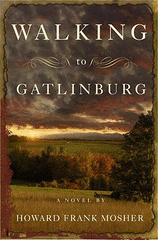 He applied the Page 69 Test to Water Hazard and reported the following:
He applied the Page 69 Test to Water Hazard and reported the following:Scanning through Water Hazard to page 69, at first I was disappointed with what I found there. It doesn’t feature any of the book’s action, or descriptions of idyllic Hawaii where the story is set, or Huck Doyle’s wisecracking observations, or even a telling moment in the plot. But then I realized the genius behind this random exercise; in a novel, there can be no waste. Especially a good mystery. Every page must have a purpose, no matter how subtle. And such it is with page 69 of my newest novel.Learn more about the book and author at Don Dahler's website.
Huck Doyle, a professional golfer plunged into the role of detective after his corporate sponsor is shot dead right in front of him, is quizzing a family friend about the murder victim’s longsuffering wife. Huck’s as Southern Californian as they get, surfer and all, while Li-Hua is a first-generation Chinese immigrant. The cultural mine-fields are aplenty. But Huck is finding out that even as an island paradise and a pillar of the community can have dark sides, so too can the beautiful wife of a philandering philanthropist.
I think the importance of this particular section is it shows the real work of a detective; just chatting with people. Pulling out clues, no matter how minute they may seem at the time. In a phrase; paying attention.
Here goes:The wake? I’m not sure. I think a few days. The family is very wealthy, so they can afford a long period of prayer before the funeral.
Uh huh. And Mrs. Wong. Have you known her long?
Yes, since I was little.
Newsflash: you’re still little.
I see. So, forgive me for asking, does she seem different to you now?
Different? She is widow now. That is different for her.
Yes, I know she’s been married pretty much her entire adult life. That’s just it. I saw a family photo where everyone seemed happy except her. And now, here she is, at her husband’s wake, and she seemed like she was almost, I don’t know, relieved.
Li-Hua grew visibly uncomfortable.
I’m sorry. I don’t understand your question.
I don’t mean any insult to Mrs. Wong. But I guess, does it seem like she’s happier now than when her husband was alive? You would know, I figure, since you’ve known her so long.
She was stone silent. Being the sensitive guy I am, I pushed just a little harder.
I mean, look, Rick himself told me his mother was handling this whole thing amazingly well. And just now, it looked to me like she was very relaxed and content despite, well, despite what all this signifies. Li-Hua, she just lost her husband. He was murdered. Yet there’s this sereneness about her.
I’m very sorry. I don’t know that word, sereneness, but Mrs. Wong is a good wife and is, ah, mourning her husband’s death in the traditional Chinese way. Her life has been, not easy. I think marriage is different, our culture than yours. It’s too difficult to explain now, and I must get back to my duties. You can find your way out?
Check out the complete list of books in the Page 69 Test Series.
--Marshal Zeringue


























